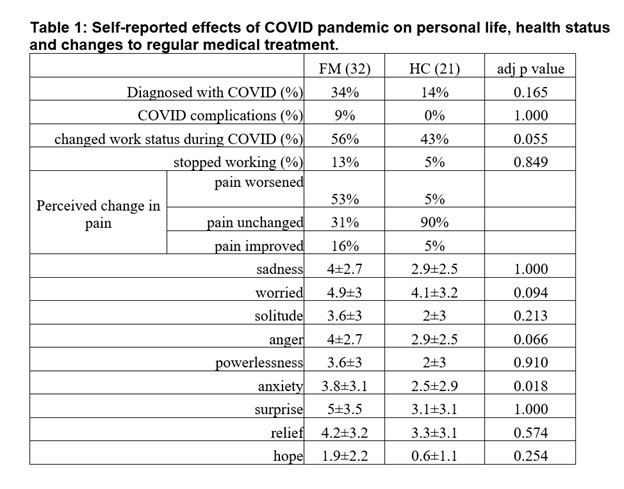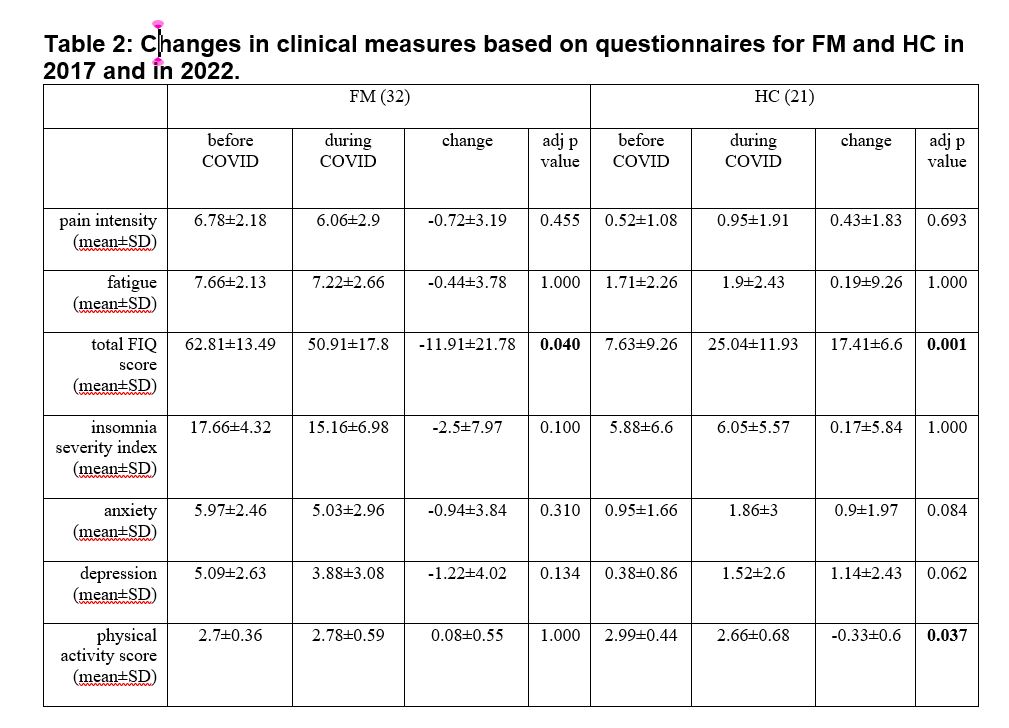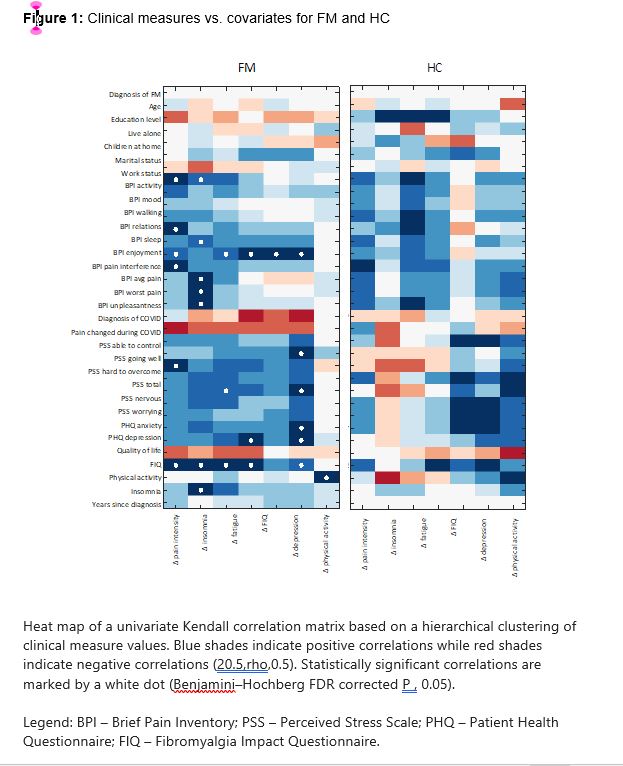Session Information
Date: Tuesday, November 14, 2023
Title: (1827–1839) Fibromyalgia & Other Clinical Pain Syndromes Poster
Session Type: Poster Session C
Session Time: 9:00AM-11:00AM
Background/Purpose: Fibromyalgia (FM) symptoms fluctuate, with exacerbation commonly associated with stressors. The COVID-19 pandemic was a cause of prolonged stress due to factors such as restricted medical care, social isolation, actual COVID infection, and changes in activity or work status. Worsening of health status in FM could be anticipated. To understand the impact of the pandemic on FM patients, this survey compared health status prior to and 2 ½ years into the pandemic.
Methods: A cohort of pre-pandemic highly characterized FM patients (FM) and healthy controls (HC) completed an on-line survey in August 2022. Data included: demographic information, symptom characteristics, perception of change in health status and emotional perceptions related to the pandemic, Fibromyalgia Impact Questionnaire (FIQ), the Brief Pain Inventory (BPI), the Patient Health Questionnaire (PHQ) for anxiety and depression, the Physical Activity Self-Administered Questionnaire (AQAP), the ED-5D-5L Quality of Life Questionnaire and pandemic-related emotions using the Perceived Stress Scale (PSS). Analyses included Fischer Exact test for dichotomous variables; Wilk-Shapiro test for normality of distribution for quantitative variables; ANOVA for normally distributed variables; the non-parametric Kruskal-Wallis test for non-normally distributed variables; adjustment for multiple comparisons using Benjamini-Hochberg correction; and correlation analysis using the non-parametric Kendall Tau test. Analyses were done on IBM SPSS version 28.
Results: Participants were FM (32) and HC (21), all female, predominantly white, and with significant differences in BMI (higher in FM), living alone and work status. COVID infection occurred in FM vs HC 34% vs. 14%. Emotions related to COVID were similar for both groups (Table 1). Treatment modifications for FM were non-pharmacological vs pharmacological by 47% vs 25% respectively. FM patients generally perceived worsening of pain, but without change on questionnaire-based measurement and greater COVID perceived anxiety, but without differences for numbers screened positive for anxiety and depression on PHQ. Quality of life was significantly improved for FM, with other questionnaires measures unchanged for both groups (Table 2). Physical activity remained stable for FM but decreased for HC (Table 2). For FM, clinical measures did not correlate with demographic variables or subjective or measured change in pain, but did correlate with function, affective status and total FIQ, with no significant correlations among HC (Figure 1).
Conclusion: Contrary to expectations, FM status remained either stable or improved according to standard questionnaires, although there was a perception of increased pain. These observations could be explained by several putative explanations: 1) FM patients may have a resilience to prolonged compared to acute stressors; 2) Societal factors such as slower life pace related to the pandemic 3) as FM scored significantly higher than HC in all measures, changes during COVID pandemic may represent regression to the mean.
To cite this abstract in AMA style:
Sahar T, Minerbi A, Verner m, Mitrovic s, Shir y, Page G, fitzcharles m. Effect of the COVID-19 Pandemic on Health Status of Fibromyalgia [abstract]. Arthritis Rheumatol. 2023; 75 (suppl 9). https://acrabstracts.org/abstract/effect-of-the-covid-19-pandemic-on-health-status-of-fibromyalgia/. Accessed .« Back to ACR Convergence 2023
ACR Meeting Abstracts - https://acrabstracts.org/abstract/effect-of-the-covid-19-pandemic-on-health-status-of-fibromyalgia/



